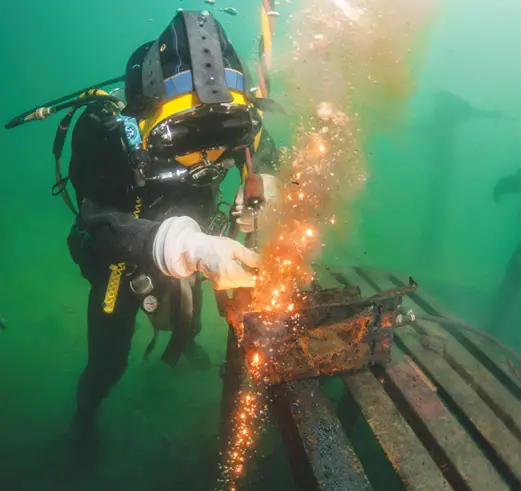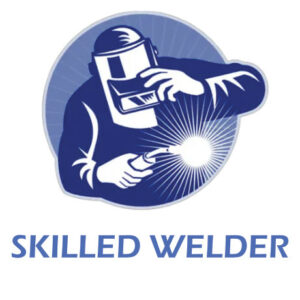
While welding certifications can help you earn a high salary, experience is the main factor in achieving the top level. In fact, welding companies are among the highest-paying industries. Below, we have listed some of the best-paying welding companies. To become one of these companies, you should first earn your welding certification. After this, you can start searching for an employer that offers a competitive salary.
Pipeline Welders
In short, a career as a pipeline welder is highly rewarding. Pipelines are used to transport various substances. These pipelines have many different components, such as metal piping, which require welding. Welders who specialize in this type of welding can earn significant sums in a relatively short amount of time. Pipeline welders are typically employed by the oil and gas industry and are often required to work outdoors in remote locations.
To become a pipeline welder, you’ll need to undergo a background check by the FBI, which could last anywhere from six months to one year. You’ll also be required to talk to former employers and neighbors to get clearance. However, a background check alone won’t get you to the top of the pay scale. The most important factor in earning a high salary in welding is experience. If you’re serious about pursuing a career in this field, you’ll need at least five years of experience in the field and a degree in engineering technology.
Another high-paying welding job is a military support welder. These jobs are very dangerous, but military support welders rarely see combat. But the pay is good, and the job description is extremely varied. You’ll work on stateside equipment, in the Middle East, and even underwater in shipyards. Although Army welders work in potentially dangerous situations, they also spend a great deal of time in repair shops. The majority of their work will be on vehicles that have broken down in the field.
Some of the highest-paying welding jobs involve travel. You may have to spend several weeks at sea or travel every other week. However, you’ll be earning an impressive salary regardless of your schedule. The only drawback to this type of job is the long hours and distance from home. You’ll also likely have to leave your family for long periods of time, so be sure to make plans to take some time off from your welding job.
Marine Welders
If you’re wondering which jobs are the most lucrative, consider working as a marine welder. These people usually work 40-45 hours per day and can expect to spend a few weekends traveling between different sites. While the pay for these positions is generally higher in the winter and spring, it also varies based on the length of a particular project. Underwater welders typically earn more than inland welders, with starting pay of around $40-60k.
In the United States, the average salary for a Marine Welder is $58,209 per year, almost twice as much as the national average. Salary information is based on three sources: Indeed users, employee reviews, and past job postings. Salary figures are estimates based on third-party submissions and should be verified with an employer. The top 5% of earners typically earn over $59,500 a year.
Underwater welders must undergo training in diving techniques and must be certified commercial divers. Underwater welding positions can pay up to $100k a year. However, the rate of workplace fatalities for these workers is much higher than for other types of welders. They may work on oil rigs, salvaged ships, and subsea construction. Underwater welders also have many different duties, so their salary is highly variable depending on their location.
Welding in the ocean can be hazardous but is not that different from welding on land. Underwater welders must have credible credentials and be willing to relocate to work on projects, and their reputation increases as a result. Therefore, welders who excel at this kind of work can expect higher salaries. One of the most demanding jobs, however, is being a marine welder.
Underwater Welders
Underwater welders are the highest-paid welders in the industry. Underwater welding careers are available in the United States and Canada. This career is one of the most challenging to get into, and earning top dollar in this field is not easy. However, it is possible to earn up to $300,000 a year working as an underwater welder. Saturation divers can expect to earn $45,000 to $90,000 a month, while deep divers can expect to earn well over $500,000. Underwater welding careers typically pay between $0.1 to $4 per foot of depth, with greater pay per depth.
This job requires advanced training and certifications, including a commercial diving certification. You must have a good swimming ability to get this certification, as you will be working in freezing temperatures. Underwater welders are typically employed on pipelines and work in murky water, so scuba diving certification is an essential part of getting this job. These welders use the shielded metal arc (SMAW) process and may use flux-core and friction welding as well.
An underwater welder performs a wide range of welding tasks, including submersible welding and dry welding in a hyperbaric chamber. To work as an underwater welder, you will need to enroll in a specialized training program. You must be certified commercial divers who are familiar with barometric pressure and how to use a decompression chamber. The training can take months but is well worth the time and money.
The most common type of underwater welding is subsea welding. These welding professionals are usually employed in the oil and gas industries. Their daily wages are $30 per hour or more per day, depending on their experience. Working eight hours a day can get you to $300 a day and a six-figure income in a week or month. You can also earn more than that in a month working as an underwater welder.
Manufacturing Welders
If you are curious about what type of welder is best paying, there are many types of jobs available. The most lucrative is pipe welders. These professionals work with large pipes that transport natural gas and oil. These pipes must be extremely strong and durable to prevent leaks. Welders who specialize in this field often work in the construction and oil industries. They must be physically fit and prepared for hazardous conditions. Pipeline welders are responsible for a variety of duties, including cutting, sizing, and shaping metal, following blueprints, and maintaining equipment and overall fabrication.
According to a 2011 report by the Bureau of Labor Statistics, the average annual salary for a manufacturing welder is $35,000 per year. This is higher than the average for any other profession but is still far below the national median salary. Other high-paying jobs for welders include architectural and structural metals manufacturing, railroad construction, commercial and industrial machinery equipment repair, motor vehicle body and trailer manufacturing, boiler, tank, and shipping container manufacturing, and automobile and airplane manufacture.
While many welders are certified, those with the highest paychecks often have additional training and certifications. These certifications require a great deal of skill, time, and energy to obtain. Some of these certifications require attending a specialty welding school, which can cost a lot of money. Also, if you have specialized training in welding, you may have to relocate for the job. However, it is worth the extra investment if you want to make the best possible wage.
North Dakota has a large energy industry and significant coal reserves. Welders working in North Dakota may work on military equipment and farm equipment that support the state’s agriculture and transportation industries. Maryland also has several major industries that depend on welders. Aside from construction, welders can also work in the home construction industry and other industries. It’s easy to see why the state of Maryland is home to some of the highest-paying states for welders.
Saturation Divers
Saturation divers work underwater and earn more than the average surface welder. They spend three weeks underwater in a pressure chamber. Saturation divers don’t decompress until the job is complete, and they can earn anywhere from $45,000 to $90,000 per month. The depth of a project and the length of the dive determine the income of saturation divers. Nonetheless, it’s worth considering these risks if you want to work underwater.
Because of their specialized skills, saturation welders earn much higher salaries than their surface counterparts. However, a certified topside pipe welding expert can outearn an experienced underwater commercial diver. The pay is higher if the welder has years of experience. In addition to making more money, saturation divers can train in other fields, which helps them build their resumes and earn even more money.
Saturation diving is one of the most dangerous jobs in the world, with potential risks of decompression sickness. It requires specialized training and a high level of physical fitness. However, if you’re willing to work long hours and risk your life, this job is for you. The pay is well-deserved, and you can earn anywhere from $45,000 to $90,000 a month.
Saturation diving is the best job for those who love the outdoors. The sea is filled with underwater jobs. In New Zealand, the average salary for this position is about 60,000 New Zealand dollars. However, the salary is significantly higher on offshore projects. Saturation divers earn a salary of up to $300,000 per year, though it depends on seasonality and the demand of the project. It’s important to note that the average underwater welder’s salary is dependent on the country and local demand.
